 Vampire Weekend's Surprising Jewish Stories
Vampire Weekend's Surprising Jewish Stories
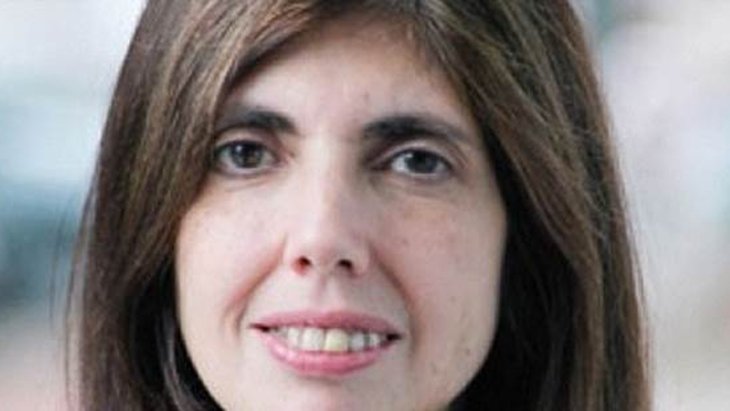

12 min read
The award-winning journalist brought the Cairo Jewish community of her childhood to life.
Lucette Lagnado never stopped fighting. “She was a courageous and brilliant reporter and writer,” explained Paul Steiger, former Managing Editor of the Wall Street Journal where Ms. Lagnado covered health care issues. The famous WSJ reporter died last week at the age of 63.
An article she wrote shed light on Josef Mengele’s gruesome experiments on Auschwitz prisoners and led to her 1991 book Children of the Flames about the survivors and their descendants. It was her memoirs about her own family, however, that brought Ms. Lagnado greatest fame. Her twin books The Arrogant Years (2011) about her mother Edith, and the award-winning book The Man in the Sharkskin Suit (2007) about her father Leon, brought to life the vibrant Jewish world of Egypt her family fled, and described their difficult acclimation to life in the United States and her longing for the world she’d left behind.
Ms. Lagnado was six years old in 1963 when her family fled Egypt. Her grandparents had moved there from Aleppo, and for years, her large extended family enjoyed a robust Jewish life in Cairo and Alexandria, which at the time boasted some of the largest and most established Jewish communities in the world.
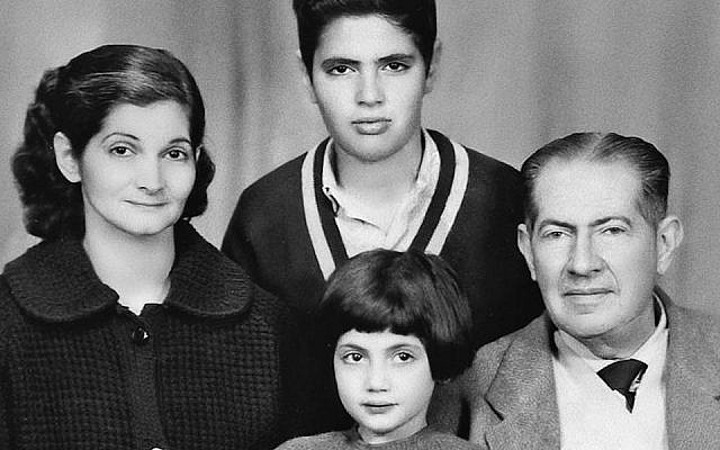 Lucette Lagnado, then 6, and her family pose for a family portrait
Lucette Lagnado, then 6, and her family pose for a family portrait
on the eve of their exodus from Egypt in the 1960s
On Friday nights, Ms. Lagnado recalled, her father had his pick of synagogues to attend in the Jewish quarter of Cairo. “When services were over,” she described in The Man in the White Sharkskin Suit, “the exquisitely dressed men once again crowded the streets, laughing and joking as they hurried home to their wives and children, anxious to sample the special Friday-night cooking whose smells filled the night air of Ghamra” neighborhood.
Even in the darkest days of World War II, when it seemed that Nazi troops were poised to take over Egypt, Egyptian Jews comforted themselves that the Jewish community would be safe. “Dieu est grand” (God is great), Ms. Lagnado’s father Leon would say whenever his neighbors feared for their lives.
Egyptian Jews’ sense of security shattered after Israel was established in 1948. Anti-Semitism began to increase, and during the 1952 revolution in Egypt, foreign and Jewish-owned businesses in Cairo were attacked, burned and destroyed. Several people, including a young Jewish woman visiting from Alexandria, were killed in the riots. Jews, whose families had lived in Egypt for generations, began to face hatred and violence and fled.
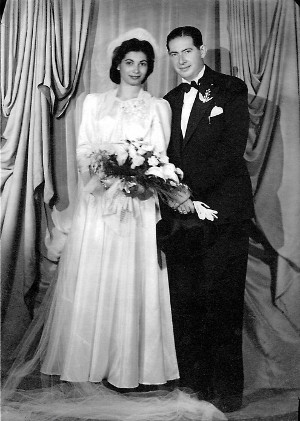 Edith and Leon in Cairo, 1943
Edith and Leon in Cairo, 1943
The Lagnados considered moving after the riots of 1952, but stayed put for over a decade, while their Jewish community found themselves increasingly targeted and dwindling as more and more Egyptian Jews sought shelter Israel or the United States. Caroline Lagnado, Lucette’s niece, recalled her father Ezra Cesar Lagnado telling her that for years after the 1952 riots he and other Jews remember “walking fearfully outside, anxious not to be attacked”. Suddenly, Jews were the enemy in Egypt, regarded as non-Egyptians, despite their thousands of years of history there.
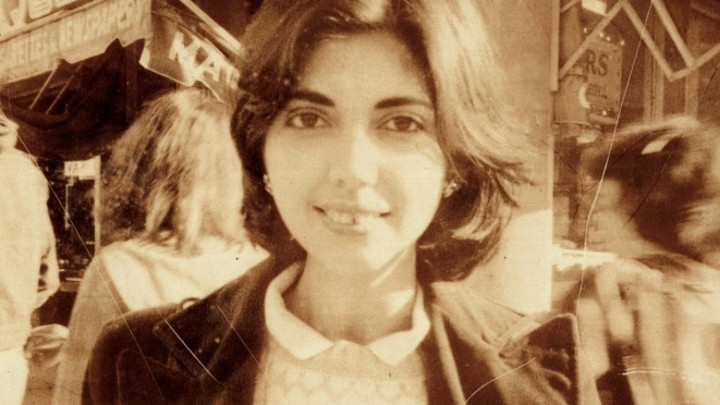
By the late 1950s, Lucette Lagnado recalled, Jews were being attacked and were panicking. The “grand synagogue on Adly Street” in Cairo had become, she wrote, “a hub of frenetic activity, the scene every day of hurried weddings. As families prepared to flee to any country that would have them, as they plotted their escape literally to the ends of the earth – Australia, Venezuela, Canada, South Africa, Brazil – young lovers chose to tie the knot lest they be separated forever. Engagements that would have lasted months were now barely a couple of days, while weddings that usually took a whole evening were performed in an hour.”
Jewish couples would sometimes go directly from their weddings in the synagogues to the piers to catch boats out of Egypt. “There wasn’t even time to cry,” Ms. Lagndano described. “There was only a feeling that one had to get out at any cost.”
Much of the Lagnado family fled to Israel. Life wasn’t easy there. In the 1950s, Israel was a poor state besieged by hostile armies from all sides, and it was struggling to absorb nearly a million Jewish refugees who’d been forced out of their homes in Arab lands like the Lagdanos. Ms. Lagnado’s grandmother and other relatives found themselves living in small farming communities across the Jewish state. Life was difficult. Her grandmother used to sing songs about the beautiful smell of orange blossoms back in Egypt, but now wrote saying she was living amongst orange groves in Israel and tiring of the scent she’d once found so alluring.
When the violence and anti-Semitism around them grew too great to ignore, Ms. Lagnado’s family decided life might be easier in the United States. It was a wrenching decision and in many ways her family never truly recovered.
The weeks before their departure were frenetic with preparations. Lucette, her parents, two brothers and sister all had new wardrobes made. Seeking ways to bring out some of the family’s savings, Ms. Lagnado’s father hired a man who owned a canning company to seal gold and jewelry into cans of marmalade to escape detection. (Fearing they would be discovered, he later opened the cans and gave away their contents; the family arrived in New York in 1963 with only $212, the amount they were officially allowed to bring out of Egypt.)
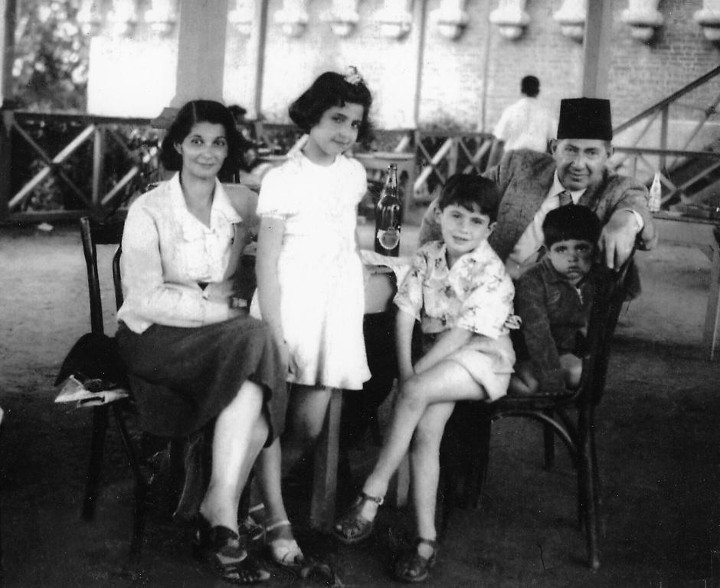 The Lagnado Family in Alexandria, 1952
The Lagnado Family in Alexandria, 1952
After 18 months of makeshift living first in Paris then in New York, the Lagnados finally moved into a tiny Brooklyn apartment. They found that life in America was much more difficult than they’d anticipated. Upper class in Egypt, the Lagnados were suddenly penniless refugees in New York. They’d brought 26 suitcases with them from Egypt, filled with ballgowns and other custom-made clothes, but they never opened them in their new home. (Years later, the suitcases were burned in a house fire, their finery never worn.) A well-meaning social worker pressured Lucette’s older brother to go to work in menial jobs instead of attending college, a decision that he deeply regretted for many years. An anti-Semitic landlord evicted the family from their first apartment. Without connections, speaking broken English, the Lagnados found themselves vulnerable and adrift.
Perhaps nothing made the Lagnados realize how different their new life was than the humiliating experience of eating in the local kosher soup kitchen. The women who volunteered there were kind, Ms. Lagdano recalled, but nothing could disguise the fact that the family which once had given charity was now receiving it.
Many other Jewish families from Egypt were also pouring into Brooklyn, and they established a vibrant community, reviving some of the sense of fellowship their members had enjoyed in Egypt. “The congregation was booming,” Ms. Lagnado recalled. “They prayed in the exact way that they had in Egypt, determined to allow nothing to change, despite the fact that they now lived thousands of miles from Cairo.” Ms. Lagnado’s father found a loving home in the resurrected community of Egyptian Jews, while some other members of her family rebelled.
Ms. Lagnado was shocked to meet Jews who were entirely secular, and soon felt pressure to give up her Jewish traditions. Ms. Lagnado’s sister left the family and their traditional way of life, and Ms. Lagnado herself began to separate from the warm Jewish traditions of her family. When she first came to America, Ms. Lagnado had an English teacher who taught her the word “broken”, smashing crockery in class so that students could describe various items as broken. As the years went by in New York, Ms. Lagnado came to realize how apt the metaphor was: much of her family life seemed to be broken in their new home. Increasingly, Ms. Lagnado mourned the loss of Jewish life and sense of community her family knew in Egypt.
In her final year of high school, tragedy struck: Ms. Lagnado was diagnosed with Hodgkin’s Lymphoma. She had the good fortune to come under the care of an eminent physician, Dr. Burton J. Lee III, M.D., who would later go on to become the private doctor of Pres. George W. H. Bush. Dr. Lee became a trusted friend and mentor of Ms. Lagnado, and years later she asked him about something that had always puzzled her.
When she was first admitted to the hospital, Dr. Lee and her father had a private talk that left her father extremely emotional. What did her father say, she wanted to know. Dr. Lee recalled their conversation perfectly decades later. Ms. Lagdano’s father had implored and begged Dr. Lee to take on his daughter as a patient. Dr. Lee was intending to treat Ms. Lagnado anyway, he recalled, but there was something in her father’s demeanor that haunted him for decades. Noting his desperation at the time, Dr. Lee remembers thinking, ‘This man has no cards left to play” as he begged for his daughter’s life.
Ms. Lagnado saw it differently. Her father Leon was utterly devoted to her and to his family; “by breaking down and pleading his case like a mendicant and invoking me again and again,” she wrote, “my father had in fact found one last card he could play,” helping his daughter once more. Luckily, Ms. Lagnado responded well to her cancer treatment and recovered sufficiently to attend Vassar College, then graduate school at Columbia University, then pursue an award-winning career in journalism.
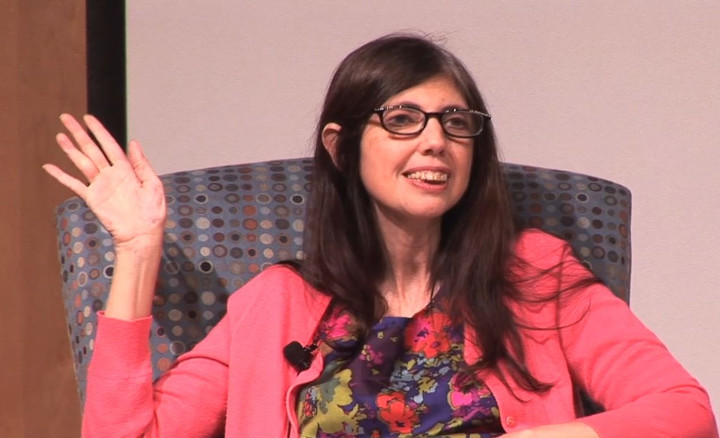
In the 1980s, Ms. Lagnado’s parents became very ill; the poor care they received led her to focus on health care as a journalist. Yet it was their family legacy and their legacy as Jews that she wanted them to be remembered for most.
In The Man in the White Sharkskin Suit, Ms. Lagnado describes the Jewish heritage her father left. Even in his declining years, wracked by ill health and living in a tiny apartment, he filled his days with giving. Ms. Lagnado gives a poignant sample of the envelopes filling his apartment. “Pay to the order of ‘The Institute to Uplift the Souls of the Holy’, $5; pay to the order of ‘The Orphans of Jerusalem’, my father would write in his tremulous hand, $10. Pay to the order of ‘The Light of Life Girls’ College, $15….” His desk wall piled high with thank you notes and pictures from the many charities he supported. He was always haunted by loss – the loss of his warm community in Egypt, the loss of tradition as his family members shed Jewish practice – but Ms. Lagnado also wanted people to remember the communities he helped build and support.
Ms. Lagnado married fellow journalist Douglas Feiden 1995. Sadly, as a result of the cancer treatment she received as a teenager she was never able to have children. She is survived by Mr. Feiden, as well as by her numerous nieces and nephews and other relatives. Ms. Lagnado also leaves a precious heritage to all of us, who are enriched by her beautiful writing and her descriptions of the Jewish worlds she loved, lost – and at times rediscovered.
In her book The Arrogant Years, Ms. Lagnado described how she left the Orthodox Jewish traditions she grew up in, and the loss and sadness she felt at their absence. She also beautifully describes rediscovering the warm Jewish lifestyle she craved years later, after she tracked down a beloved childhood friend who still lived in the heart of the Sephardi Orthodox Jewish community in Ocean Parkway, Brooklyn. Now a grandmother, Ms. Lagnado’s friend welcomed her back with open arms.
“In my absence” Ms. Lagnado wrote, “the (Orthodox Jewish) Community...had grown and flourished… Families stuck together here, and children lived near their loved ones even when they were grown… Above all, the Community took care of its own, my friend reminded me.” It was all so much like the close-knit community Ms. Lagnado’s parents described in Egypt, and for which Ms. Lagnado longed all her life.
In Brooklyn’s Orthodox community, “If someone was sick and infirm,” Ms. Lagnado described, “there were armies of volunteers rushing to visit them and comfort them and bring them soup. A bride in need of a trousseau could count on getting the fine clothes and gowns she needed…. It was exactly as the Jews had functioned back in old Cairo and in long-ago Aleppo, as it had in the world of the pasha and his wife, when philanthropy was personal as well as communal…” Ms. Lagnado had once again found the lost world of her youth.
“We have Thanksgiving every week,” she learned from her Orthodox friend, in the form of warm Shabbat and holiday meals. Ever the brilliant reporter, Ms. Lagnado wanted to convey that beauty and way of life. After a lifetime of yearning for the community and spirituality she’d had in Egypt, her gift to us lay in part in sharing the wonder she felt at finding this vibrant Jewish community once more in America.
“It was the siren song (my friend) had sung for years – every time I had run into her – a melody that filled me with yearning and where the lyrics consisted of only two words,” Ms. Lagnado wrote in her inimitable style of the Orthodox Jewish life she’d improbably discovered late in life: “Come back come back come back come back.”
